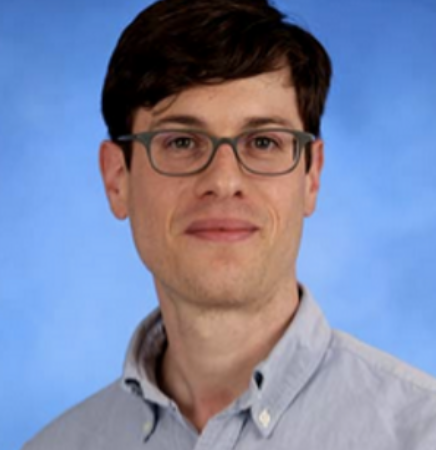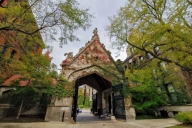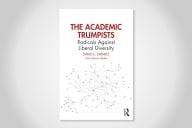You have /5 articles left.
Sign up for a free account or log in.

Jeremy Fischer
Jeremy Fischer
A tenured professor at the University of Alabama at Huntsville resigned this week over the institution’s COVID-19 mitigation policies -- or, in his view, the lack thereof.
“Some faculty, staff and administrators are looking the other way, holding their tongues, holding their noses, or holding their breath in fear as they prepare to convene or attend in-person gatherings on campus,” Jeremy Fischer, the professor, wrote in his resignation letter. “It seems that only when we reach a political as well as a public health crisis will our university move most or all classes safely online. But this is a moral emergency, not a time for craven and timorous -- or self-serving -- responses.”
Fischer, a philosopher who specializes in moral psychology, wrote that any professor would be punished for endangering public health by, say, smoking in class. COVID-19 presents a greater immediate threat to public health than secondhand smoke, he said, yet professors who refuse to convene large classes in close quarters this fall at Huntsville over public health concerns will be punished.
“We know what it takes to protect community health and very likely save lives, and we have the ability to do it,” Fischer said in his letter. “What is lacking is the collective willingness to do so. And I find myself compelled to consider whether my continued relationship with UAH might render me complicit in a moral atrocity.”
Fischer’s use of analogy and invocation of morality and the collective is the stuff of philosophy. But Fischer told Inside Higher Ed Tuesday that “it doesn’t take a philosopher” to recognize “apparently atrocious institutional decisions.”
What decisions? Huntsville recently adopted an indoor mask mandate, but it has no mandatory social distancing, no comprehensive testing regimen and, according to state law, no vaccine mandate. The vast majority of classes will be in person.
The Alabama Hospital Association says there are currently only two ICU beds left in the state, of 1,562 total. Only 36 percent of Alabamans are fully vaccinated.
Prior to his resignation, Fischer asked the university to do more to prevent the spread of COVID-19, including via a petition signed by more than 100 colleagues across fields. The university did eventually adopt the mask mandate that professors demanded in that petition. But professors’ two other demands, universal social distancing indoors and permission to teach online or take unpaid leave, went unmet.
The university did not respond to a request for comment about its policies or Fischer’s departure.
Via email, Fischer praised the “sensible” mitigation plan adopted by nearby Alabama A&M University, which involves moving courses online for two weeks at the start of the fall term and randomly testing unvaccinated students weekly after that. He further recommended moving large lecture classes online, especially when the professor would prefer it, among other ideas.
Fischer only gained tenure at Huntsville last year. Regarding his career, he said his “situation in the near term is stable, and I will continue as before with my research and publications goals.”
Despite going public with his resignation on Twitter, Fischer cautioned that his is not really a story about an individual, but rather “relevant institutions and policies.”
“UAH has not, in my opinion, extended sufficient job protection to workers in this pandemic,” he said. “Nor has it sufficiently demonstrated concern for faculty -- and especially staff -- retention.”
Huntsville is far from the only institution whose fall pandemic plans have been criticized. Many professors are worried that their universities are peeling back prevention strategies just as case counts once again surge due to the more transmissible Delta variant. And so Fischer’s resignation isn’t the only difficult choice a professor has had to make about teaching this fall, either.
Jason Helms, an associate professor of English at Texas Christian University, for instance, recently shared that his wife and two young daughters will move to North Carolina to live with extended family for the academic year. Helms will stay in Texas to teach in person, as is required by his institution.
Helms’s fears about keeping his family safe are heightened as his youngest daughter, a toddler, suffers from a rare heart condition that until recently made her high risk for COVID-19. The family is also increasingly concerned about the lack of available pediatric ICU beds in north Texas.
Helms’s older daughter’s would-be teacher didn’t wear a mask on the first day of school this month, he said. Her new district will require masks. The family leaves in a few days.
“I think you’ve got the temperature of faculty and staff at universities right now, but we are outraged. And we’re tired,” Helms said, adding that he’ll be looking for jobs elsewhere soon.
Helms's criteria for jobs this time around won’t necessarily be what kind of research programs they have or whether he’ll be able to continue to write books. Instead, he said he’ll be asking, “What did you do during the pandemic? Did you take care of your people?”








